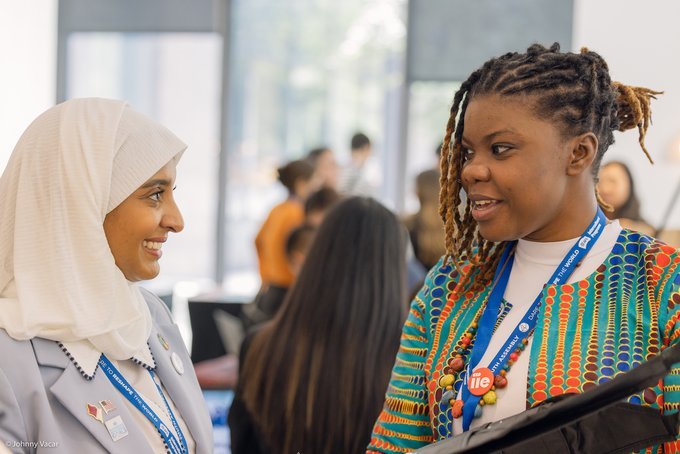Youth Assembly Plenary | Constructive Engagement Between Young People and Governments
The Youth Assembly Plenary, held at the Parliament of Kenya, brought together 60 young representatives from all 47 counties. During the session, participants engaged in meaningful discussions and proposed practical policy recommendations aimed at addressing key national challenges, including youth innovation, climate action, education, and poverty eradication.
The session emphasised the need for greater youth involvement in innovation, particularly in sustainable development sectors. Climate action was also a major focus, with representatives calling for more youth-led initiatives in environmental conservation and resilience efforts. Improving education access and quality, particularly in marginalized regions, was highlighted as essential to achieving equitable development.
There were three committee leaders: Hon. Lawrence, Hon. Mariam, and Hon. Khalfan. Each of them laid their reports on the table of the house, representing Committees 2, 3, and 4, in that order. Hon. Lawrence, as the leader of Committee 2, presented a comprehensive report outlining the modern causes of poverty in Kenya. The report identified poor governance and corruption, unemployment, lack of access to livelihoods, and the unfair distribution of resources as the primary contributors to poverty in the country.
Hon. Mariam, representing Committee 3, provided further insights into potential solutions. The recommendations included implementing strong anti-corruption measures, the immediate elimination of overlapping roles between county and national governments to enhance efficiency, and sourcing labor from within the country to boost local employment. Hon. Mariam also emphasized the importance of providing farmers with training, access to improved fertilizers and better-quality seeds, as well as capital financing to encourage youth to venture into agriculture. These measures, she noted, would strengthen food security and promote sustainable economic growth.
Hon. Khalfan, representing Committee 4, led the discussion on youth innovation for climate change. He stressed the importance of equitable resource allocation to ensure that all regions, especially the most vulnerable, could access the necessary tools and funding for climate resilience. Hon. Khalfan also advocated for a focus on climate adaptation rather than solely on mitigation, ensuring that communities are prepared for the current and future impacts of climate change. Sustainable agriculture was identified as key to food security, with Hon. Khalfan highlighting carbon trading as a viable solution for reducing Kenya’s carbon footprint while creating economic opportunities for youth engaged in environmental conservation efforts.
Members of the assembly actively participated in discussions on these critical topics, sharing insights and proposing additional recommendations. The dialogue emphasized the importance of youth empowerment in driving policy change and fostering innovation in sectors related to climate action and sustainable development. Many representatives called for increased collaboration between youth organizations and government bodies to facilitate the implementation of proposed solutions. Others stressed the need for comprehensive education reforms that incorporate climate change education and innovation into the curriculum, ensuring that young people are equipped with the knowledge and skills necessary to address these pressing challenges.
During the session, on notices of motion, Hon. Nancy Macharia requested a statement from the chairperson of the departmental committee on education regarding the delayed salaries and understaffing of non-teaching personnel in special needs schools. She explained that these issues significantly impacted the quality of education and support provided to students with special needs. Hon. Macharia highlighted that many special needs schools were struggling to provide adequate resources and staff, which hindered the educational experience for these students. She emphasised the urgent need for the government to address these staffing shortages and ensure that non-teaching personnel receive their salaries on time, as this would enable schools to operate more effectively and provide the necessary support to both students and teachers.
In response, Hon. Shampiana, the Vice Chair of the Department of Education, acknowledged the concerns raised by Hon. Macharia. She stated that the committee would conduct site visits to the affected schools to assess the situation firsthand. However, she pointed out that a significant challenge remained: funding. Hon. Shampiana emphasised the need for adequate financial resources to effectively address the staffing shortages and ensure timely salary disbursement. She assured the assembly that the committee was committed to advocating for the necessary funding to support special needs schools and improve the overall educational environment for students with disabilities.
The collective insights and proposals presented during the session established a robust framework for tackling poverty, driving youth innovation in climate action, and promoting sustainable development. The assembly emphasised the urgent need for comprehensive policy reforms that empower youth to lead initiatives in their communities, ensuring that solutions are inclusive and reflective of the diverse needs across the country. There was a unanimous call for enhanced collaboration between youth organisations and government bodies to facilitate the swift implementation of these actionable recommendations. By prioritising investment in education and vocational training, particularly in climate-smart agriculture, Kenya can harness the potential of its youth to build a resilient and sustainable future. This plenary session not only reaffirmed the pivotal role of young people in shaping national policies but also underscored the imperative of equitable resource distribution and systemic change to create a lasting impact in the fight against poverty and climate change.


